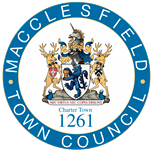Communications and Marketing Policy
|
Version No. |
Date Change Made |
New Version No. |
Changes Made By (initial) |
Comment |
|---|---|---|---|---|
| 1 |
|
GA | New policy. Adopted at Full Council 15.6.20 Agenda item 10.7 | |
| 28/10/2024 |
2 |
AS | Updated Policy approved at Full Council 28/10/2024 |
Contents
1. Introduction
MTC has made a commitment to inform, engage and collect feedback from its residents, partners, businesses and stakeholders. This strategy guides the communications and engagement activity. It is important that communications are two-way; informing stakeholders about the work of the Town Council and relevant news in the town while also listening to residents responses to aid service improvements.
This strategy will cover all aspects of how the Town Council communicates and engages with everyone who encounters it either directly or indirectly. An important part of any organisation’s role is to ensure that information provided is easily accessible, relevant and timely.
2. Objectives
- To create a fair and positive image of the town, and the Town Council.
- To support elected members in their role as community leaders
- To ensure that the people of the town understand the different between the Town Council and the Local Authority, Cheshire East Council.
- To coordinate communications so that all parts of the Council are working towards shared objectives that clearly promote the Town Council Strategy.
- To effectively inform town residents and stakeholders of the aims, decisions, intentions, objectives and activity of the Town Council and make it easy to understand.
- To use a variety of methods to ensure that communication keeps everyone included and to encourage and motivate residents and stakeholders to respond.
- To build trust, satisfaction and respect by being open and transparent.
Our vision is that our residents will:
- know what services the Town Council provides and the quality of service they can expect from us
- feel confident and satisfied with our services, and the value for money provided.
- understand how to get involved with, or influence, the work of the town Council.
In addition, the Town Council communications will be used to Champion the town, to encourage visitors, tourists and businesses to find Macclesfield a great choice of destination to live, work and play
3. Target Audiences
3.1 All with a stake in the future of Macclesfield Town Council, such as those living, working or doing business in the town. The aim is to encourage and create positive and constructive dialogue with the community.
3.2 Stakeholders include but are not limited to the below list, and will potentially change over time
- Residents of the Town
- Town and Local Authority Councillors and Officers
- Member of Parliament
- Community Groups and Charities.
- Local Agencies and Partners
- Local service providers
- Local businesses and employers
- Young People
- Older People
- Schools
- Religious establishments
- Visitors and tourists
4. Context of Messages
4.1 It is important that all communications are clear, keep stakeholders informed and where it can show the impact. The aim is for the context to show:
- The impact of the Town Council.
- To encourage feedback from residents.
- To encourage working together for a better future for Macclesfield.
- To celebrate the town and all it has to offer – positive messages about Macclesfield to raise community spirit and pride in the town.
- Promotion of
- Local independent businesses
- Local events particularly those of organisations we support through funding or administrative help
- Signposting to local charities or organisations that can help or make a difference#
5. Methods
5.1 The Town Council appoints a dedicated Communications Officer, who primarily works with the Councillors, who garner the views of residents, businesses and visitors on their wards.
The following lists (not exhaustive ) the methods used to distribute information and collect feedback:
- Talking with residents, businesses and visitors.
- Social Media (Facebook, Instagram, Twitter)
- The Town Council Website
- Feedback forms (print and online)
- Production of Macc Update Newsletter
- Production of Annual Report
- Posters/Flyers
- Hosting Civic Events
- Press Releases
- Local radio – Silk FM, Canalside, Gurnet Sound
- Local newspapers – Print and Online
- Hosting and Attending community events
- Public Town Council meetings – committee meetings, full council, and parish meetings
- Hosting and attending focus groups
- Councillor surgeries/Meet the Councillor
- Visits and networking
- Letters/mail shots
- Word of Mouth
- Award schemes
- Competitions
5.2 The Town Council strives to ensure communications reach as many as possible and are accessible, so Councillors and the Council can fully represent their views.
6. Action Plan
The Town Council will have an annual action plan detailing proposed communication, consultation and partnership activity over the following 12 months.
The plan will require
- Communication to be seen as a strategic part of the planning and management processes.
- All service areas to manage the messages they want to communicate and the opportunities to showcase success and good practice via preferred methods.
- Methods and channels of communication to be reviewed regularly to ensure that communications reach their target audiences and that communications channels are cost effective so that an appropriate approach and focus can be taken.
- Upcoming Town Council plans and projects.
Additional elements include
- Understanding of the democratic process
- Increase visibility of ward Councillors through individual social media posts and local ward events
- Increased emphasis on non-digital media
- Coordinate with Town Clerk re specific messages to be communicated via press release
- Regular email newsletter containing positive information and news
7. Evaluation and Amendment
The success of the Councils communication strategy lies with providing the people of Macclesfield with services that they want, delivered in a way that suits.. The effectiveness of the communications with the community Is continuously reviewed through the many feedback channels and then improved where appropriate.
